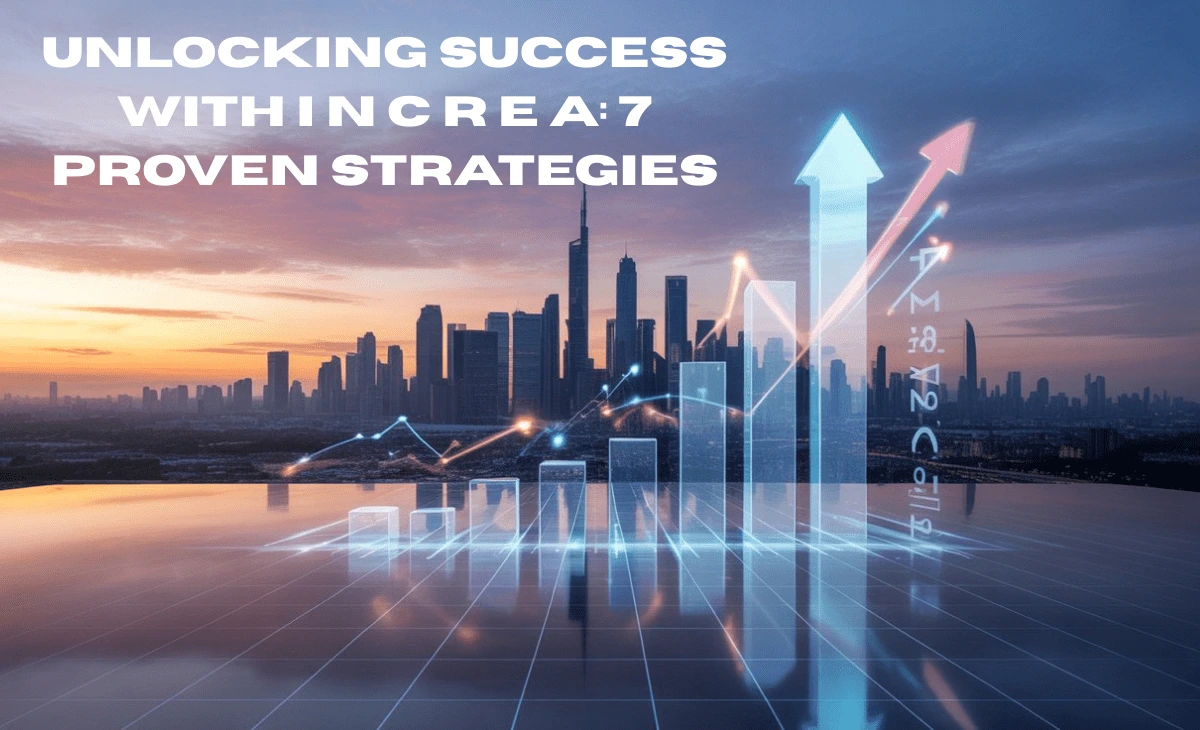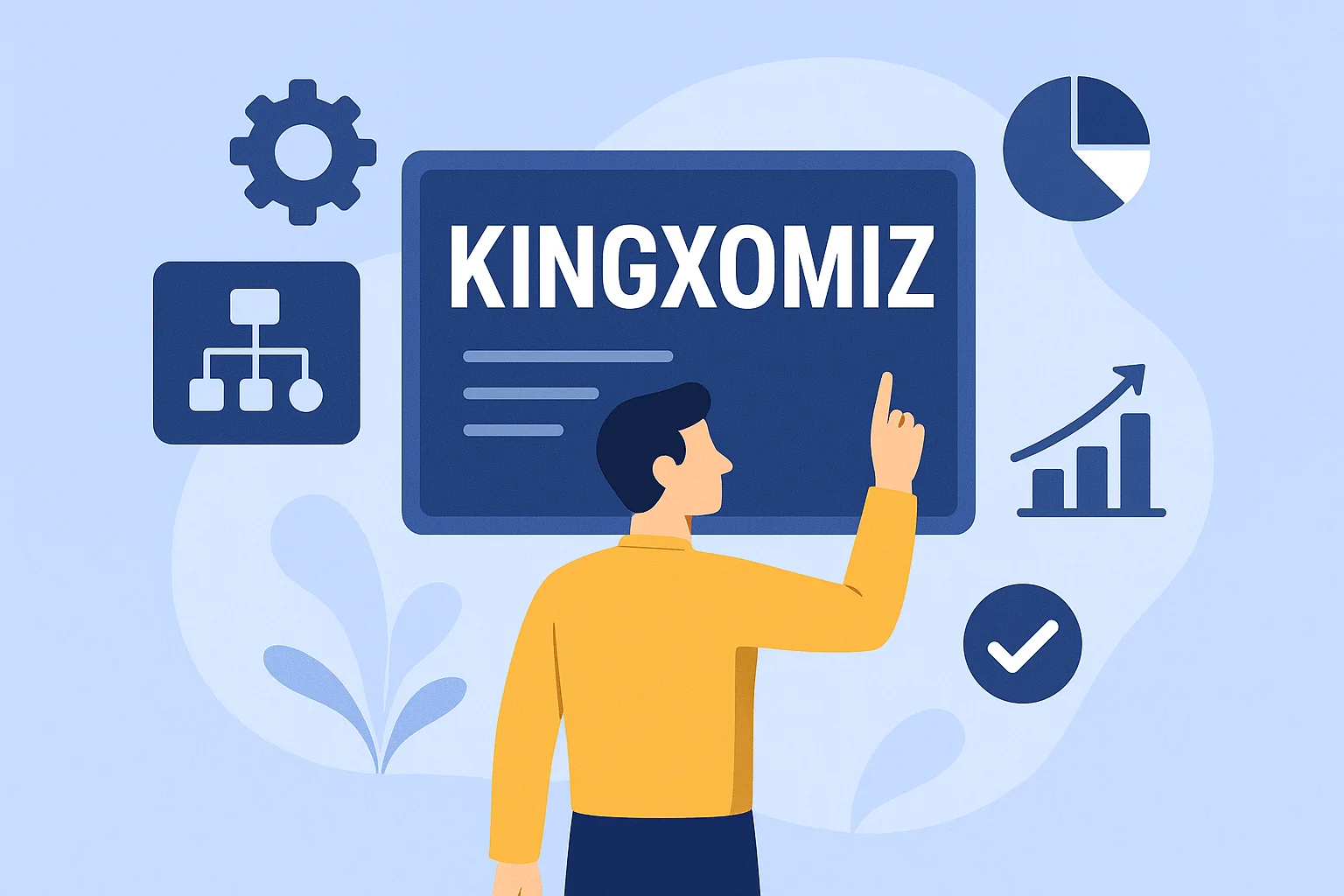There’s a reason people keep searching for i n c r e a. The word itself sparks curiosity because it carries the promise of forward movement. For some, it symbolizes career advancement. For others, it is a framework for business expansion, or even a mindset of personal growth. At its core, it is about progress—tangible, measurable, and sustainable.
The real value of this concept lies in its versatility. It adapts to the context you place it in. A student might use it to improve grades. A startup might rely on it to capture market share. A leader might practice it to empower teams. The beauty of this philosophy is that it scales with ambition.
What is i n c r e a?
Defining i n c r e a isn’t about finding a dictionary entry; it’s about understanding its essence. It refers to deliberate actions taken to grow, improve, or enhance outcomes in a way that compounds over time. Unlike vague ideas of “getting better,” this practice emphasizes repeatability and long-term momentum.
From my experience working with entrepreneurs, I’ve seen the principle take many forms. Sometimes it’s financial, where profits double year after year. Sometimes it’s personal, like mastering a skill that once felt impossible. The point isn’t just to move upward but to create systems that make growth inevitable.
The Evolution of Progress
If we look back through history, the spirit of advancement has always been a silent force behind progress. Ancient civilizations applied it through trade, farming, and knowledge-sharing. During the industrial age, it took the form of mass production and efficiency. Today, in the digital economy, it has become synonymous with speed, innovation, and adaptability.
The one constant? Survival depends on growth. Without continuous improvement, societies stagnate, companies collapse, and individuals risk irrelevance. This is why, across centuries, every leap forward—from printing presses to artificial intelligence—has carried this DNA of steady expansion.
Why i n c r e a Matters Today
In 2025, the pace of change is brutal. Jobs are evolving, businesses face global competition, and technology is reshaping industries faster than regulations can catch up. In this climate, i n c r e a isn’t optional; it’s essential.
In business, it means staying ahead of rivals who are one innovation away from dominating the market. On an individual level, it ensures employability in industries that may look entirely different within a decade. At the societal scale, it fosters resilience in the face of disruption.
To ignore the need for constant progress is to risk standing still while the world moves forward.
Key Benefits of Growth
The benefits of this principle go beyond numbers. Of course, businesses enjoy higher profits, better efficiency, and competitive advantages. But the deeper value lies in resilience.
When teams adopt this mindset, they recover faster from setbacks. When individuals embrace it, they cultivate confidence and adaptability. And when communities apply it, they become hubs of innovation and opportunity.
I’ve personally watched a mid-sized company transform its entire culture by practicing steady advancement. In less than two years, employee turnover dropped by 40%, customer satisfaction soared, and profitability doubled—all because every decision was framed around sustainable progress.
How i n c r e a Shapes Personal Growth
At the personal level, i n c r e a feels less like a business strategy and more like a life philosophy. Imagine committing to a simple rule: every day, improve just one thing by a small margin. Over a year, those tiny steps add up to a massive transformation.
Take fitness, for example. Instead of trying to overhaul diet and exercise overnight, this method encourages adding one better habit at a time—maybe drinking more water this week, then walking an extra mile next week. The compounding effect of these micro-steps is astonishing.
The same applies to learning. Reading just ten minutes daily may seem trivial, but after twelve months, that’s equivalent to finishing 20+ books. That’s the power of sustained progress—it sneaks up quietly and rewards consistency.
Business Applications of i n c r e a
In business, i n c r e a is both an offensive and defensive strategy. Offensively, it helps companies capture markets and outpace rivals. Defensively, it prevents stagnation and decline.
One client I worked with was struggling with declining sales. Instead of a dramatic rebrand or layoffs, we applied gradual improvement by streamlining operations, improving employee training, and enhancing customer engagement. Within a year, revenue increased by 35%, and the company had built a stronger foundation for future growth.
What made the difference was not a miracle cure but the discipline of consistent advancement—the very heart of i n c r e a.
Technology and Continuous Advancement
Technology is perhaps the most visible stage for this principle today. Algorithms learn, adapt, and improve by design. Businesses use AI tools to spot opportunities long before humans can. Individuals rely on productivity apps, time trackers, and learning platforms to scale their own capabilities.
Consider digital marketing. Five years ago, a strong social media presence might have been enough. Today, data-driven personalization, AI-powered content creation, and predictive analytics define competitive advantage. Without continuous development, a business risks being invisible in the digital noise.
My First Experience with i n c r e a
When I first committed to practicing i n c r e a, I started small. Just 20 minutes daily dedicated to skill sharpening. At first, it felt almost too simple to matter. But within three months, I noticed significant changes: I was completing projects faster, thinking more creatively, and delivering better results to clients.
The takeaway? True progress doesn’t demand giant leaps. It thrives on small, intentional, and consistent steps that compound into extraordinary success over time.
FAQs
What does i n c r e a mean in business?
It refers to deliberate strategies that drive sustainable growth, innovation, and profitability.
How can I practice i n c r e a in daily life?
By focusing on small, consistent habits that build toward long-term goals, such as improving skills or refining routines.
Is it only about financial growth?
Not at all—it applies to personal growth, career development, education, and even lifestyle improvement.
Why is it important in 2025?
Because industries, jobs, and technologies are evolving at unprecedented speeds, making growth a survival strategy.
Can it improve career growth?
Yes—through skill development, networking, and consistent professional improvement.
What tools help with i n c r e a strategies?
AI-driven analytics, productivity platforms, and e-learning tools are some of the most effective.
Also read about Ovppyo
Conclusion
The beauty of i n c r e a is that it’s universal. It applies to careers, businesses, education, and even personal health. It’s not about sudden breakthroughs but about steady, consistent effort that compounds over time.
The choice is simple: adopt i n c r e a and move forward, or ignore it and risk falling behind. Start small today, measure your progress, and keep building. The future doesn’t belong to the biggest—it belongs to those who keep growing.




